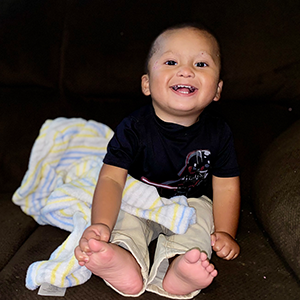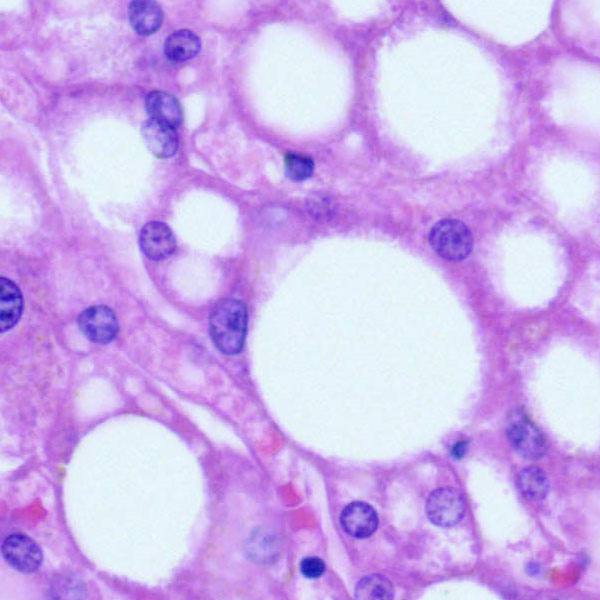-
Science Saturday: Patient consults and finding the best treatment option for each individual

Is regenerative medicine in your future or would standard procedures be the best remedy for diseases like arthritis? Mayo Clinic’s Regenerative Medicine Consult Service helped two men with a similar disease choose two vastly different paths to healing based on their individual conditions and lifestyles.
79-year old Joe Rosinski, a retired Ford motor company engineer, came to Mayo Clinic’s Jacksonville, Florida campus seeking relief for osteoarthritis in the knee. Active in weight lifting and team sports well into his 60’s, Rosinski was sidelined by extreme pain. He could no longer whisk his bride of 50 years across the dance floor, a favorite hobby.
“I had bone-on-bone in both knees. Pain from arthritis was really rough for quite a few years. I was putting off and putting off treatment for quite a few years. It had come to a point that I had slowed down to minimal activities,” says Rosinski.
68-year old John Simpson, a retired grape farmer from California had a similar ailment. He enjoyed helping his daughter on her own Texas ranch but had trouble keeping up with the work and his grandchildren. Arthritis, he says, had gotten so bad that he could barely walk.
“I travel at the airport a lot, and it was to the point that I couldn't hardly walk from one gate to another if it was more than six or eight Gates away. My knees were worn out on the insides,” says Simpson.
Simpson, a survivor of both colon and prostate cancer, had built a strong relationship with medical providers at Mayo Clinic’s Arizona campus, where he had his cancer treated. When he heard about new regenerative procedures that might heal without surgery, he returned to Mayo Clinic again – this time to Mayo Clinic’s Regenerative Medicine Therapeutics Suites in Florida. Those procedures are also known as orthobiologics – substances found in the patient’s own body that musculoskeletal specialists sometime use to assist with healing.
Regenerative Medicine Consult Service
Regenerative medicine is an emerging area of practice that seeks to tap the body’s ability to heal itself, restoring form and function to diseased tissues, cells and organs. As with anything new, there is hope and there is hype. So, how do patients separate the science from science fiction when it comes to care?
Mayo Clinic’s Regenerative Medicine Consult Service seeks to educate patients and help them understand the proven versus what is unknown and the risks and benefits of different options. All patients seeking regenerative care at the Regenerative Medicine Therapeutic Suites are given thorough examinations and a 30-minute patient consult.

“We look at their X-rays, and I examine their knee and we determine whether or not they have osteoarthritis. The next part of the consult is a discussion about the standard of care treatment. We advocate for standard of care first,” says Shane Shapiro, M.D., medical director of Mayo Clinic’s Regenerative Medicine Therapeutic Suites. “We don’t recommend any one treatment over another.”
The patient and provider then discuss treatment options –whether that’s routine clinical care or regenerative procedures. Together, they decide how to proceed.
“At Mayo Clinic, the regenerative treatments we offer are grounded in scientific research. We always talk to patients about the full range of medical options appropriate for their specific condition or symptoms,” says Dr. Shapiro, who is also an associate professor and consultant in the Mayo Clinic Department of Orthopedic Surgery.
Regenerative medicine treatments are sometimes an option when standard treatment does not meet the patient’s needs. However, they are not a miracle cure and may not be appropriate for each person.
Through the consult service, providers help patients understand their choices and may refer them to standard treatments throughout Mayo Clinic, depending on diagnosis and therapeutic needs.
Same Disease, Different Choices
Though both Joe Rosinski and John Simpson suffered from osteoarthritis in their knees, they took different therapeutic paths. Mr. Rosinski chose standard knee replacement surgery, because of the advanced stage of his condition.
“They told me my disease had progressed to the point that stem cell procedures were not going to work for me,” says Rosinski. “They said, ‘I’m not going to be the one to tell you when I need a knee replacement. You are going to be the one to tell us when you can’t take the pain anymore.’”
He had knee replacement surgery shortly after the consult, and is now able to walk without knee pain.
John Simpson came to Mayo seeking a regenerative procedure known as micro-fragmented adipose tissue. This is a procedure using a Food and Drug Administration approved device to harvest a patient’s own adipose (fat) tissue for injection into affected joints. After his consult, Simpson learned that based on his condition, he was a good candidate for micro-fragmented adipose tissue injection. He chose to pay out of pocket for the option of avoiding surgery on his right knee.
“My goal was to avoid a knee replacement. All I know is my right knee is much better than it has been for a lot of years. Now I can make my way around the airport without any problem at all,” says Simpson.
“I was planning on having my right shoulder injected with adipose tissue, but I learned the problem was with my socket, not the arthritis. Dr. Shapiro said this was not the right procedure for my shoulder, so we decide on a cortisone steroid shot, which helped relieve my pain,” he says.
Simpson is satisfied with his choices and plans to have micro fragmented adipose tissue injections in left knee as well.
Mayo Clinic is following patients who choose this procedure for two years to monitor tissue healing. Researchers are studying the evidence on micro-fragmented adipose tissue injections and other regenerative medicine procedures to better understand effectiveness. This data is used to inform patients and to supplement information learned through clinical trials:
- At Mayo Clinic, we encourage standard treatments
as first consideration for musculoskeletal conditions. However, orthobiologic
procedures can be potentially complementary serving to fill a crucial treatment
gap that exists once patients have exhausted standard of care options including
activity modification, physical therapy, anti-inflammatory regimens, steroid
injections and before patients are ready to consider a surgery like joint
replacement. - Mayo Clinic experts join colleagues around the
field of orthopedic surgery in the shared goal of addressing patients’ unmet
needs by advancing novel orthobiologic therapies and their potential to lessen
pain, improve function and quality of life.
Mayo Clinic Regenerative Medicine Consult Service seeks to empower patients with information to make the right choice for their care. Consultations may also take place over the phone for people who are looking for information and resources about regenerative medicine. Regenerative medicine procedures are available on all three Mayo Clinic campuses. For more information on the Mayo Clinic Regenerative Medicine Therapeutic Suites call 904-953-0853. For general education questions about regenerative medicine, call 1-844-276-2003.
###
Learn more about Dr. Shapiro’s research:
- A Prospective, Single-Blind, Placebo-Controlled Trial of Bone Marrow Aspirate Concentrate for Knee Osteoarthritis
- Quantitative T2 MRI Mapping and 12-Month Follow-up in a Randomized, Blinded, Placebo Controlled Trial of Bone Marrow Aspiration and Concentration for Osteoarthritis of the Knees
- Preparing regenerative therapies for clinical application: proposals for responsible translation
Related Articles







